Matter and Its Interactions

Educators and Parents, Sign Up for The Cheat Sheet
Weekly updates to help you use Science News Explores in the learning environment
Thank you for signing up!
There was a problem signing you up.
-
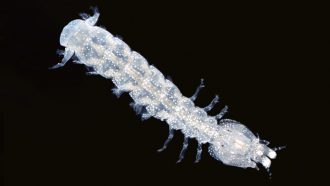 Tech
TechMantis shrimp inspires somersaults of new soft robot
Its rolling acrobatics allow this robot to move especially swiftly — much as a fictional new Disney character can.
-
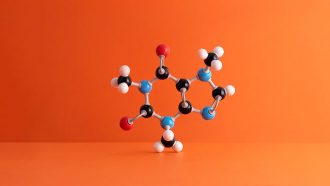 Chemistry
ChemistryScientists Say: Bond
In chemistry, this attachment between atoms forms because of the power of attraction. Chemical bonds make up every solid object on Earth.
-
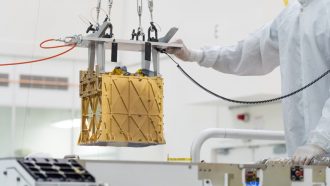 Planets
PlanetsThe Perseverance rover split CO2 on Mars to make breathable air
This oxygen-making experiment shows that astronauts could one day make air to breathe and to help fuel their ride back home.
-
 Chemistry
ChemistryScientists Say: Metal
Metals are substances that can be elements, alloys or compounds. They all conduct heat and electricity and can be formed into different shapes.
-
 Materials Science
Materials ScienceCopper ‘foam’ could be used as filters for COVID-19 masks
The lightweight new material could serve as a washable and recyclable, eco-friendly alternative for many current mask filters.
By Sid Perkins -
 Chemistry
ChemistryScientists Say: Alkaline
Alkaline chemicals are basic — substances that produce hydroxide ions in solution.
-
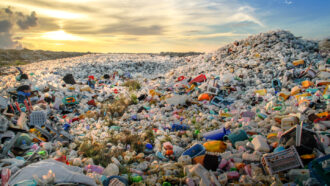 Chemistry
ChemistryNew recycling technologies could keep more plastic out of landfills
Recycling plastics is really hard — especially into useful materials. But new chemical tricks could make recycling easier.
-
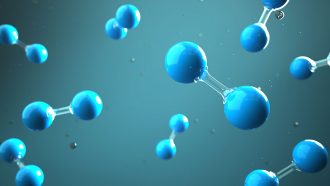 Chemistry
ChemistryExplainer: What are chemical bonds?
When various particles, atoms, ions or molecules come together to form a substance, they are held together with chemical bonds.
-
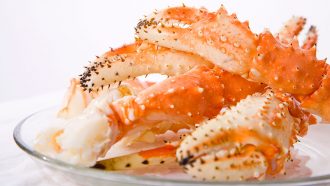 Materials Science
Materials ScienceBandages made from crab shells speed healing
The chitin in seafood wastes, insect “bones” and fungi is a chemist’s dream. Used in a new medical dressing, it beats regular gauze for wound healing.
-
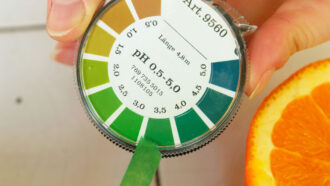 Chemistry
ChemistryLet’s learn about acids and bases
Acids give away particles with positive charge. Bases accept positively charged particles. They are both critical for chemical reactions.
-
 Chemistry
ChemistryExtreme pressure? Diamonds can take it
Diamond retains its structure even at extreme pressures, which could reveal how carbon behaves in the cores of some exoplanets.
-
 Earth
EarthLet’s learn about snow
Snow is more than just frozen water vapor. Scientists are studying everything from its shape to other planets where snowflakes fall.